What Happens to Your Body If You Don’t Drink Water All Day, According to Doctors
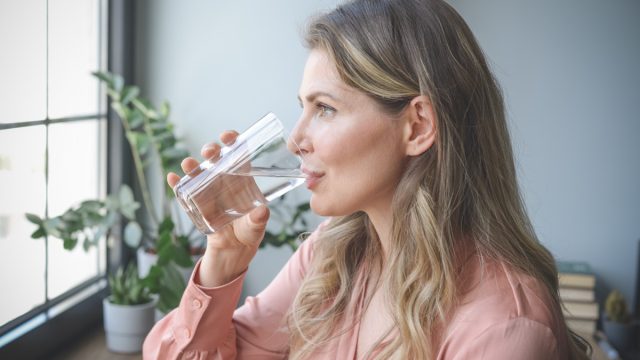
We all know it’s essential to drink water throughout the day, yet far too many of us forget until the effects of dehydration set in. “It’s essential to make drinking water a priority in your daily life,” K. Mitchell Naficy, MD, a board certified family physician, tells Best Life. He says that staying properly hydrated will help you to maintain a healthy body and mind, as well as prevent dehydration-related health problems.
“Try to drink at least eight 8-ounce glasses of water every day, and drink more when you are exercising or playing sports, in hot weather, or if you are feeling ill,” he says. Read on to learn what happens to your body if you don’t drink any water all day, according to doctors and other experts.
READ THIS NEXT: If You Drink This Beverage Often, Get Your Kidneys Checked, New Study Says.
Your bathroom habits will change.
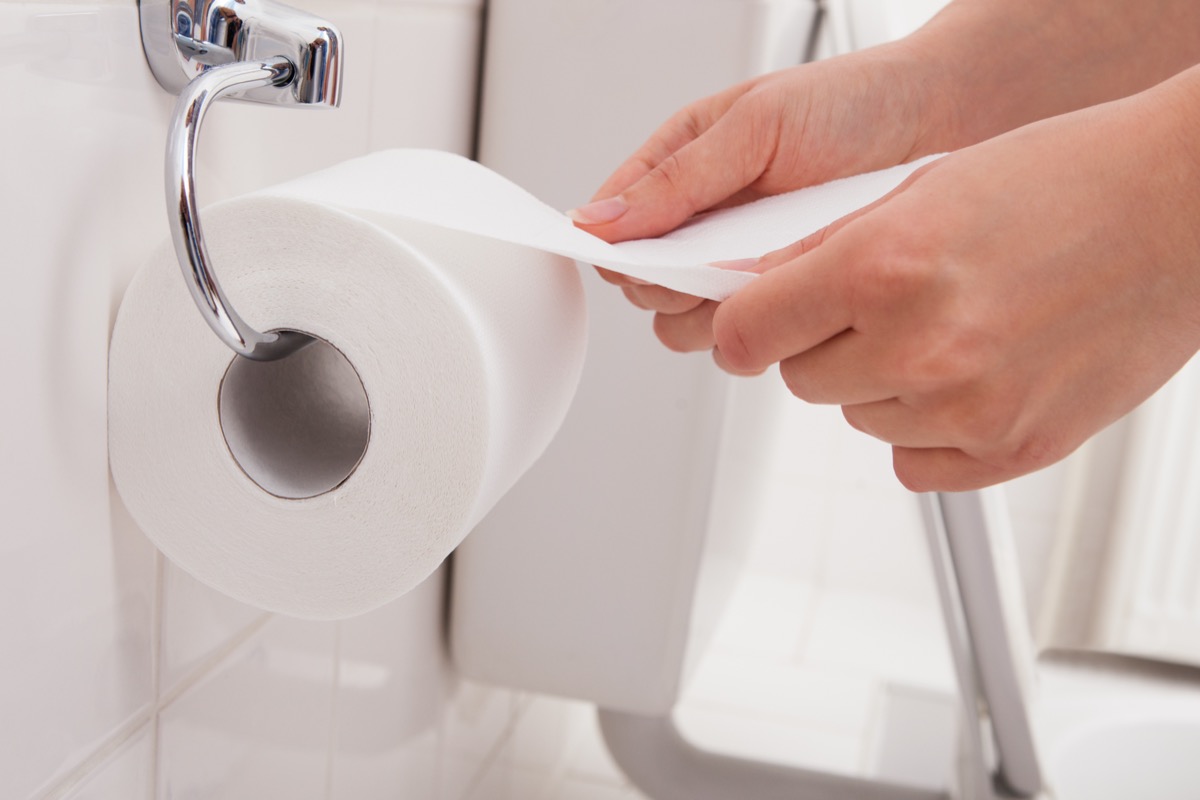
Besides thirst, changes in the bathroom are among the first symptoms you may notice upon becoming dehydrated. You’ll pee less often, and the color of your urine will likely change from a light yellow—which indicates good hydration—to a darker yellow or even an amber-brown color. If this happens, it should serve as a reminder that it’s time to drink up.
READ THIS NEXT: If This Happens to You in the Bathroom, Get Checked for Heart Failure.
You may experience dizziness, headaches, and fatigue.

When you neglect to drink water all day, you may notice that you feel dizzy, develop a headache, or experience fatigue, says Naficy. This is just one way that “your body is alerting you that it needs fluids to function properly,” he explains.
According to the Cleveland Clinic, you can usually help a dehydration headache resolve by drinking water, resting, and taking over-the-counter pain relievers. However, dizziness may indicate a more serious problem, their experts say. “If you have signs of severe dehydration (such as confusion or dizziness), get medical help right away,” they write.
You could have eye trouble.
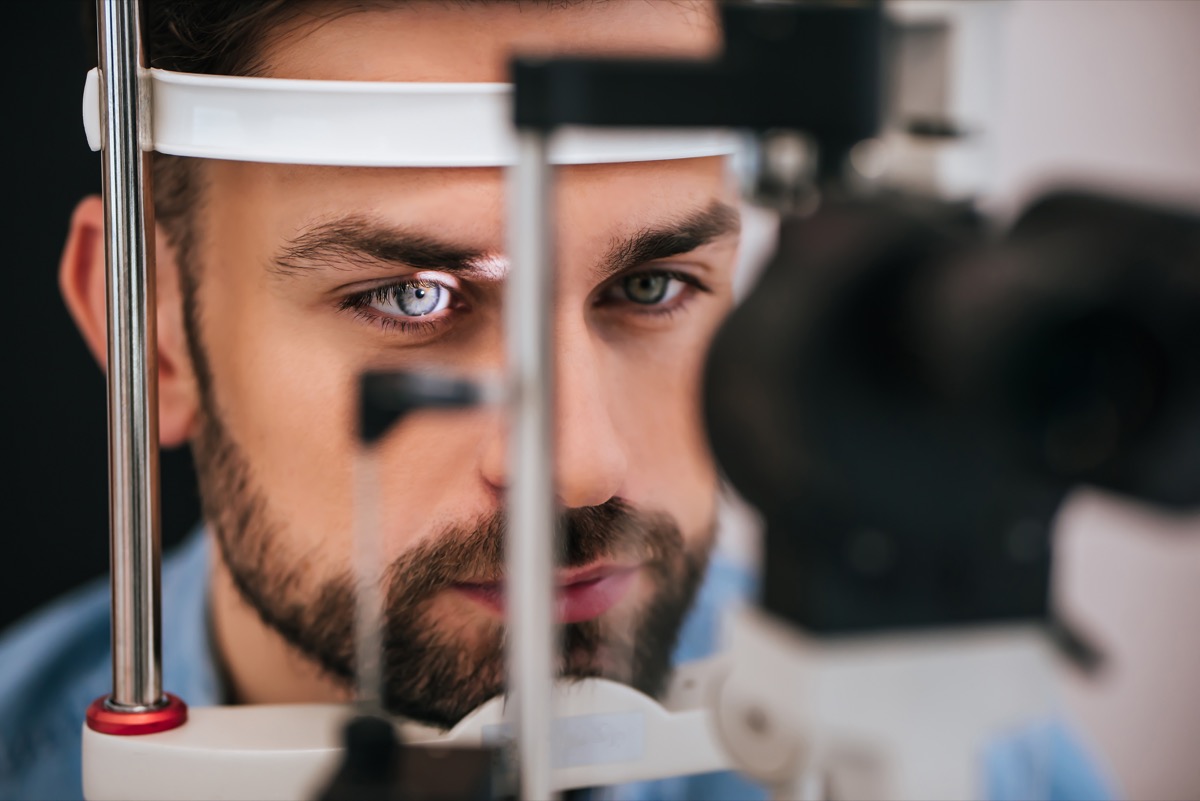
When you don’t drink water all day, you may also notice changes to your ocular health and vision. “If one does not drink adequate water throughout the day, it can lead to fluid loss in the body,” Besty S. Jacob, OD, a Florida-based optometrist at True Eye Experts, tells Best Life. “This, in turn, can result in dry eye, eyestrain, and vision problems such as irritation, excess watering, blurred vision, or a feeling of a foreign body in the eye. Without sufficient tears to nourish the eyes, they may be more prone to infections.”
Jacob adds that dehydration can cause tired eyes, blurred vision, headaches, and double vision. “To relieve these symptoms, it is important to consume plenty of water and use lubricating eye drops,” he says. “Drinking adequate amounts of water throughout the day is key in ensuring proper hydration for both general health and eye health.”
You may be more susceptible to heat stroke.

Failing to adequately hydrate on hot days can trigger an acute health episode, says Naficy. “One of the most serious issues is a decrease in your body’s ability to regulate your internal temperature. When your body is dehydrated, it can’t release heat as quickly, causing your body to overheat and leading to heat stroke,” he explains.
Though rehydrating or finding a cooler location can help lessen the symptoms of heat stroke while you wait for help, the Mayo Clinic says you’ll need to be seen by a doctor. “Home treatment isn’t enough for heatstroke. If you have signs or symptoms of heatstroke, seek emergency medical help,” their experts write.
You could develop digestive problems.

After drinking little to no water in a day, you may also notice that your digestive tract begins to suffer. “Your body needs water to properly digest and absorb important nutrients, so you may experience digestive issues like constipation or cramping,” says Naficy. Being chronically dehydrated can lead to even more severe gastrointestinal problems, including stomach ulcers, gastritis, acid reflux, and more.
For more health news sent directly to your inbox, sign up for our daily newsletter.
Your electrolytes will be out of balance.

Our bodies are made up largely of water stored in fluid compartments: stores of blood and other fluids which surround cells. “Your kidneys and liver, as well as other organs and tissue, continually move electrolytes in and out of cells to adjust fluid levels within the compartments,” explains the Cleveland Clinic.
That’s why, when you don’t drink water all day, you could be putting yourself at risk of an electrolyte imbalance, says Barbara Kovalenko, RD, a dietician and nutrition consultant for the health app Lasta. “When you lose fluids, you also lose electrolytes such as sodium, potassium, and magnesium. These are essential for nerve and muscle function and a lack of them can cause cramps and weakness,” she tells Best Life.
Your blood pressure can be affected.
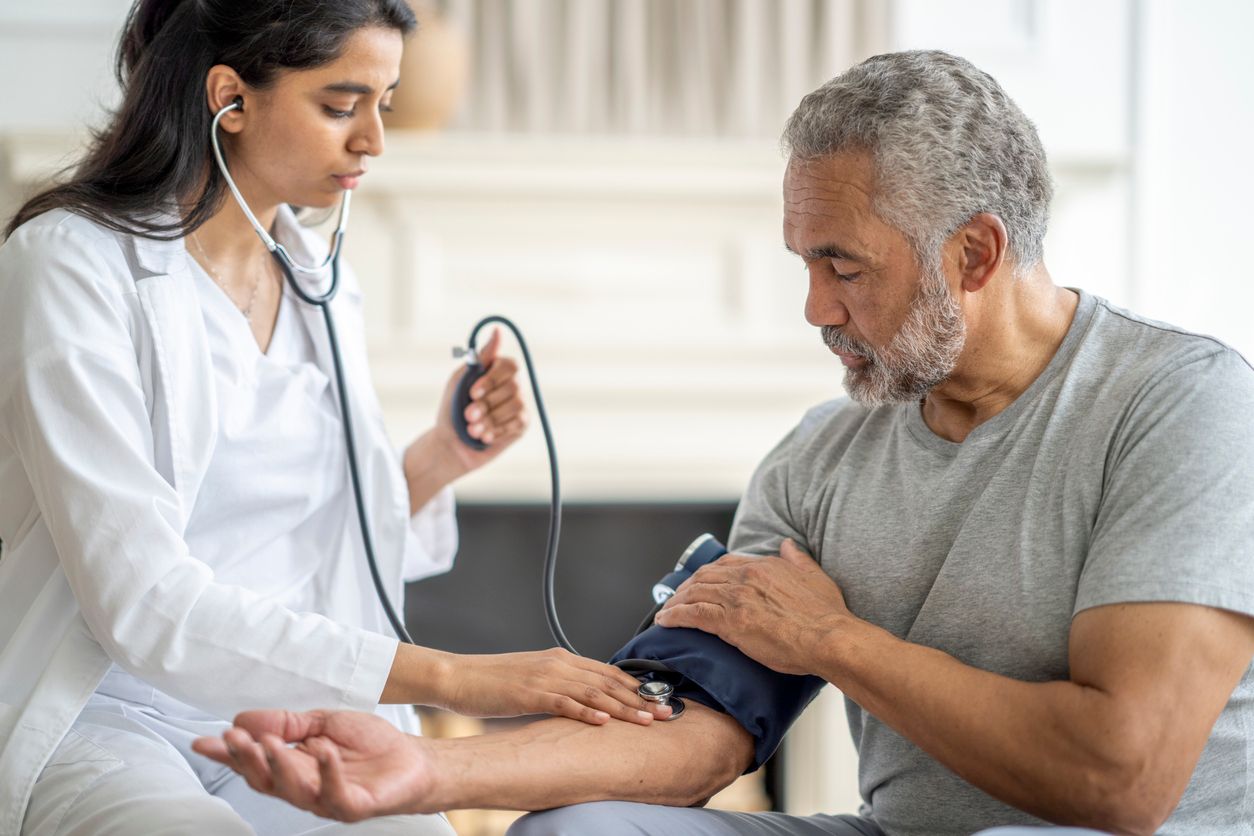
Not drinking water in a day could also lead to a decrease in blood volume, or the amount of fluid in your blood vessels. “Having a normal blood volume is important because it allows your blood to reach all the tissues and organs in your body,” explains Healthcare Associates of Texas.
Naficy notes that even short-term dehydration can cause a decrease in blood volume, leading to lightheadedness, paleness, and low blood pressure. “In extreme cases, dehydration can cause confusion, loss of consciousness, and even death” as a result, he warns.
You skin might suffer.
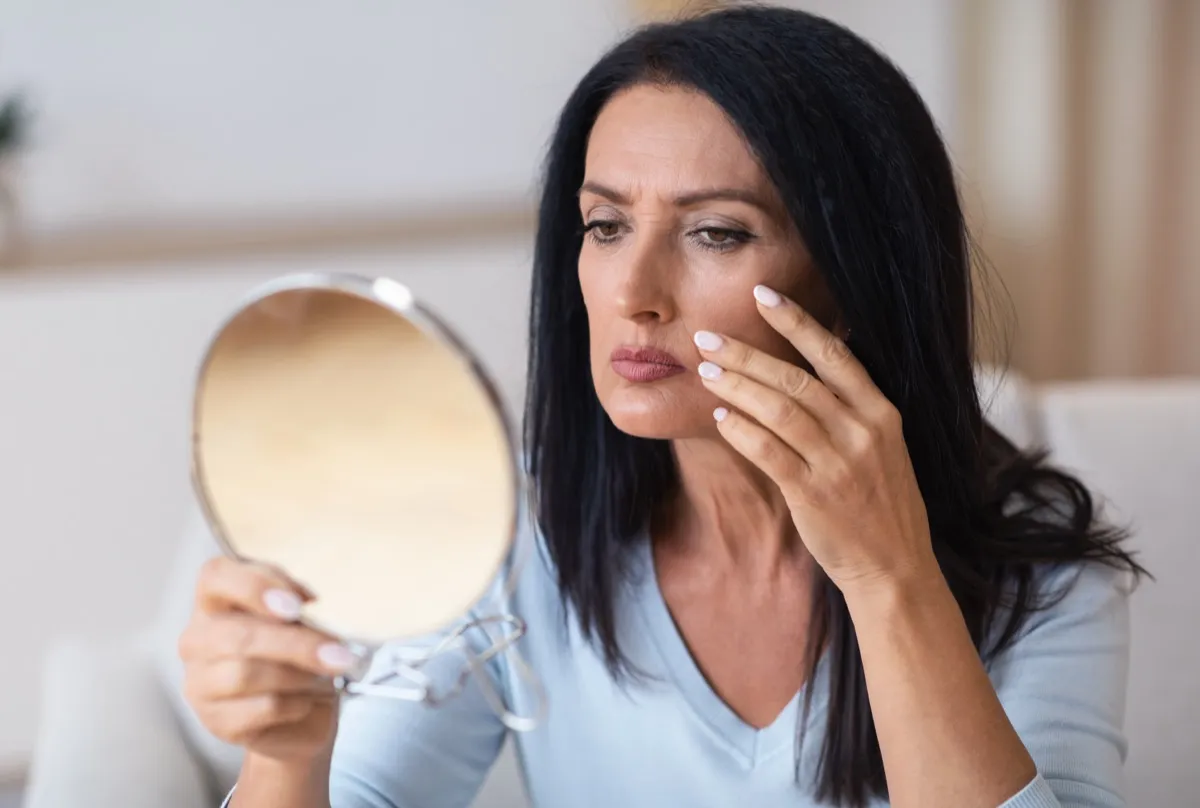
Skin problems are also common in those who neglect to drink enough water. “Dehydration can have a significant impact on the skin,” says Anju Methil, MD, DDV, a dermatologist and the founder of Skin and Shape. “When the body lacks water, the skin may become dry, itchy, and dull-looking,” she adds.
Mathil adds that prolonged dehydration can also cause wrinkles and uneven skin tone. “The skin’s ability to perform essential functions like cell turnover is affected without adequate hydration, leading to flaky and unhealthy-looking skin. In addition, dehydrated skin may crack and feel itchy, which can let in bacteria,” she says.